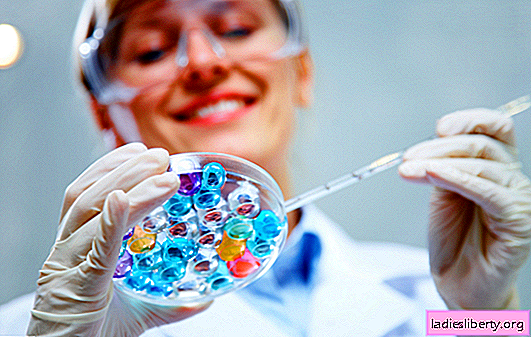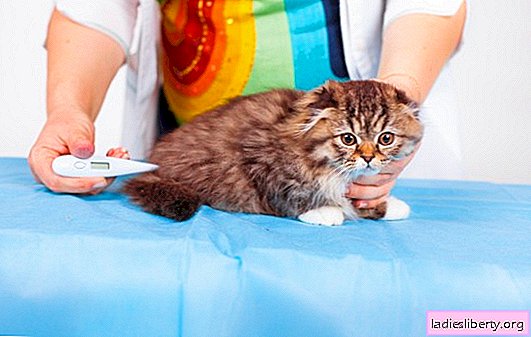
Children are the flowers of our life, but, unfortunately, not everyone is able to have them. The latest technologies have made amazing progress, and anyone who wants to become the parents of a couple can resort to the in vitro fertilization procedure. What is it, what indications and contraindications does this procedure have? Consider the benefits, and possible harm, to the health of mother and baby, IVF technology.
What is in vitro fertilization: a history of origin
IVF or in vitro fertilization is the fertilization of an egg by a sperm outside the female body. The egg is fertilized in a special test tube. That is why children born with the help of in vitro fertilization technology are said to be "test tube children."
For the first time, IVF technology was applied by gynecologist Patrick Steptow and embryologist Robert Edwards in 1977. Edwards later received the Nobel Prize, and in vitro fertilization began to spread throughout the world, helping infertile couples to have a baby. In the same 1977, Louise Brown, the first child born with the help of artificial insemination, was born.
Before Russia, and more precisely the Soviet Union, IVF technology came much later. The first child born artificially appeared only in 1986.
In vitro fertilization is developing quite quickly. Since 1977, most of the methods for the preparation and conduct of artificial insemination have changed, but some errors still exist. Unfortunately, the probability of successful fertilization of an egg within the framework of IVF does not exceed 35%, which, of course, moves the procedure away from the ideal.
Who can undergo in vitro fertilization?
You can not resort to an IVF procedure. Artificial insemination has its own indications, that is, the presence of certain deviations and diseases in a woman. In vitro fertilization can be used in the presence of the following diseases and pathologies:
Endometriosis
Disruption of the hormonal system
Violations of the fallopian tubes
· Acquired and congenital pathologies of the reproductive system
· Infertility partner
Lack of ovulation
That is, it can be concluded that in vitro fertilization is permissible for couples suffering from infertility.
What harm can IVF cause to mother and baby?
In vitro fertilization technology cannot be called safe. Preparation for artificial insemination and the process of its implementation, can greatly affect the health of women and children.
In preparation for the IVF procedure, a woman should take a large number of hormonal drugs, which can cause a malfunction of many body systems and organs. The expectant mother is highly likely to get the following problems:
· Early menopause
Often, immediately after the birth of a child conceived by artificial means, a woman is exposed to early menopause and all its symptoms: nausea, mood swings, insomnia, blood pressure jumps, hot flashes. Fortunately, menopause after the in vitro fertilization procedure is very often only a temporary event.
Thyroid disorders
Taking hormonal drugs and a huge load on the endocrine system can lead to a malfunction in the thyroid gland. If regularly observed by a therapist, problems from the endocrine system can be avoided.
Cardiomyopathy
Due to the large intake of estrogen hormone in a woman’s body, the permeability of blood vessels increases, and the heart muscle weakens. If pregnancy is planned using IVF technology, then a woman needs to be ready for preventive treatment in a cardiology hospital.
· Increased risk of cancer
Although the relationship between IVF and oncology has not been proven, one should not forget that taking hormonal drugs greatly affects the development of magnetization.
· Bleeding
During IVF procedures, bleeding can be triggered. Of course, such cases are a rarity, but the risk of acquiring at least anemia is still present.
Infections
Violations of the bladder and urethra
The threats posed by in vitro fertilization are serious enough for the body and the health of the expectant mother, but what harm can an IVF procedure cause to the health of an artificially conceived child?
The first child born with the help of IVF technology, went the fifth dozen of life. It was said above that this baby is Louise Brown born in 1977. She is alive, healthy and has two children born naturally. This proves that "in vitro children" may not experience health problems. But the technology is not perfect, and deviations can occur during natural pregnancy. Consider what difficulties a child born with in vitro fertilization may face.
Wolf and cleft lip
· Underdevelopment of the cardiac septum
Esophageal atresia
Anorectal atresia
It is necessary to pay attention that all of the above diseases do not affect the child without fail. The risk of complications of the wasps of the cardiovascular system is 15% higher than in children born naturally. As for the cleft and cleft lip, in this case, the risk of pathology is only 3% higher.
This information proves that a child born using IVF technology has almost equal chances of a healthy life with a child conceived naturally.
About the benefits of in vitro fertilization
It would be foolish to deny that in vitro fertilization is a complex procedure that greatly affects the health status of both the mother and the baby. But few will disagree that successfully carried out IVF technology justifies all the dangers and threats with just one result. So what are the benefits of in vitro fertilization?
· Birth of a child
Of course, the goal of in vitro fertilization is to have a baby. Many couples who have passed hundreds of attempts at conception have tried many methods of fertilization, are disappointed and give up, resigned to a childless future. Thanks to IVF technology, more than 5 million people have been born, having blessed with their birth a much larger number of people.
· Exclusion of pathologies
At the stage of embryo selection, the embryologist has the opportunity to exclude cells infected with pathologies for conception.
· Determination and planning of the sex of the child
Planning the sex of a child before conception is very important if there are diseases in the family that are transmitted by sex (from father to son, from mother to daughter).
· Birth of twins or triplets
Often, IVF technology doubles the likelihood of twins and triplets being born. This cannot but please couples who dream of having a baby in their family.
IVF technology is spreading every day and this is not surprising, because thanks to it you can get the most important thing in life - children.











